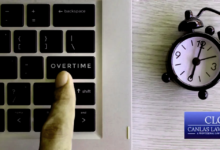7 Important Work of Personal Injury Lawsuits in the USA

Personal injury lawsuits play a vital role in protecting the rights and providing compensation to individuals who have suffered harm or injury due to the negligence or wrongful actions of others in the United States. Understanding the key aspects of personal injury lawsuits is crucial for both victims and their legal representation. In this article, we will explore the important work involved in personal injury lawsuits, including the steps to file a lawsuit, types of compensation, legal considerations, and more.
Personal injury lawsuits are legal claims filed by individuals who have sustained physical, emotional, or financial injuries due to the negligence, recklessness, or intentional misconduct of another party. These lawsuits aim to seek justice and compensation for the damages suffered by the victim.
Read More: PERSONAL INJURY LAW SERVICES IN NYC
Understanding Personal Injury Lawsuits
Definition of Personal Injury Lawsuits
Personal injury lawsuits encompass a wide range of cases, including but not limited to car accidents, slip and falls, medical malpractice, product liability, workplace accidents, and wrongful death. These lawsuits are based on the legal concept of negligence, which holds individuals or entities responsible for their actions or failure to act reasonably.
Types of Personal Injury Lawsuits
Personal injury lawsuits can be categorized into various types based on the circumstances of the incident and the nature of the injuries. Some common types include motor vehicle accidents, premises liability, medical malpractice, product liability, and wrongful death.

Steps Involved in Filing a Personal Injury Lawsuit
Successfully pursuing a personal injury lawsuit requires following a series of crucial steps. Understanding these steps can help victims navigate the legal process effectively. The following are the key steps involved in filing a personal injury lawsuit:
Gathering Evidence and Documentation
To build a strong case, it is essential to gather relevant evidence and documentation related to the incident. This may include medical records, accident reports, photographs, witness statements, and any other supporting documentation that can establish the liability of the responsible party.
Hiring an Attorney
Seeking legal representation from an experienced personal injury attorney is highly recommended. An attorney specializing in personal injury law can provide valuable guidance, protect the victim’s rights, negotiate with insurance companies, and represent them in court if necessary.
Negotiating a Settlement
In many personal injury cases, the parties involved may opt for settlement negotiations instead of going to trial. An attorney can assist in negotiating a fair settlement that adequately compensates the victim for their injuries and losses. During this process, the attorney will engage in discussions with the opposing party or their insurance company to reach a mutually acceptable agreement.
Filing a Lawsuit
If a settlement cannot be reached through negotiation, the next step is to file a formal lawsuit. This involves preparing a complaint that outlines the legal basis for the claim and submitting it to the appropriate court. Once the lawsuit is filed, the legal process moves forward, and both parties will proceed with discovery and pretrial proceedings.
Discovery Phase
The discovery phase allows both parties to gather information and evidence through various legal mechanisms. This can involve interrogatories (written questions), depositions (recorded statements under oath), document requests, and expert witness testimonies. The discovery process helps each side understand the strengths and weaknesses of their case.
Pretrial and Trial Phase
During the pretrial phase, attorneys from both sides may engage in settlement discussions, alternative dispute resolution methods, or further motions to narrow the issues before trial. If the case proceeds to trial, each party will present their evidence, witnesses, and arguments in court. The judge or jury will then decide the outcome based on the presented evidence and applicable laws.
Compensation in Personal Injury Lawsuits
In personal injury lawsuits, compensation aims to restore the victim to the position they were in before the injury occurred. The compensation awarded can cover various types of damages, including:
Economic Damages
Economic damages are the measurable financial losses resulting from the injury. This can include medical expenses, lost wages, property damage, rehabilitation costs, and any other out-of-pocket expenses incurred as a direct result of the incident.
Non-economic Damages
Non-economic damages refer to the intangible losses that are not easily quantifiable. These can include pain and suffering, emotional distress, loss of enjoyment of life, and the impact on personal relationships. Determining the value of non-economic damages often involves subjective assessments and the expertise of legal professionals.
Punitive Damages
In some cases where the responsible party’s actions were particularly egregious or malicious, punitive damages may be awarded. Punitive damages aim to punish the defendant and deter similar behavior in the future.
Statute of Limitations and Time Restrictions
Personal injury lawsuits are subject to statutes of limitations, which are strict time limits within which a lawsuit must be filed. These time restrictions vary depending on the type of claim and the jurisdiction in which the lawsuit is being filed. It is crucial for victims to be aware of and adhere to these time limits to preserve their right to pursue a legal claim.
Common Challenges and Legal Considerations
While pursuing a personal injury lawsuit, there are several common challenges and legal considerations that victims and their legal representation should be mindful of:

Comparative Negligence
In some cases, the victim’s own actions or negligence may contribute to the incident. Jurisdictions with comparative negligence laws allow for a percentage of fault to be assigned to each party involved. The victim’s compensation may be reduced based on their degree of fault.
Liability and Fault
Establishing liability and proving fault is crucial in personal injury cases. This requires demonstrating that the defendant owed a duty of care, breached that duty, and caused the victim’s injuries or losses. Collecting sufficient evidence and expert testimonies is often necessary to establish liability.
Insurance Issues
Insurance coverage can significantly impact personal injury cases. Dealing with insurance companies, negotiating settlements, and understanding policy limits and exclusions can be complex. An experienced personal injury attorney can navigate these issues and advocate for fair compensation.
Legal Representation
Having competent legal representation is vital in personal injury lawsuits. An experienced attorney who specializes in personal injury law understands the intricacies of the legal system, knows how to build a strong case, and can effectively advocate for the victim’s rights. They can handle the complex legal procedures, negotiate with insurance companies, and represent the victim’s best interests throughout the entire process.
Conclusion
Personal injury lawsuits play a crucial role in seeking justice and compensation for individuals who have suffered harm due to the negligence of others. By understanding the steps involved in filing a lawsuit, the types of compensation available, and the common challenges in personal injury cases, victims can navigate the legal process more effectively. Seeking legal representation from an experienced attorney is highly recommended to ensure the best possible outcome.
Read More: Claiming Compensation for a Personal Injury in the USA
FAQs (Frequently Asked Questions)
- How long does it take to settle a personal injury lawsuit?
The duration of a personal injury lawsuit varies depending on various factors, including the complexity of the case, the willingness of the parties to negotiate, and the court’s schedule. Some cases may be resolved through settlement within a few months, while others may take several years if they go to trial.
- Can I file a personal injury lawsuit if the incident happened a while ago?
Personal injury lawsuits are subject to statutes of limitations, which set a time limit for filing a lawsuit. The specific time limit varies depending on the jurisdiction and the type of claim. It is important to consult with an attorney to determine if you can still pursue a legal claim based on the applicable statute of limitations.
- What if I can’t afford an attorney for my personal injury case?
Many personal injury attorneys work on a contingency fee basis, which means they only receive payment if they win the case or secure a settlement. This arrangement allows individuals with limited financial resources to access legal representation without upfront costs. It is recommended to discuss fee arrangements with potential attorneys during the initial consultation.
- What factors are considered when determining the compensation in a personal injury lawsuit?
Various factors are taken into account when determining compensation in a personal injury lawsuit, including the severity of the injuries, medical expenses, lost wages, impact on quality of life, and the extent of the defendant’s liability. Each case is unique, and the compensation awarded will depend on the specific circumstances of the incident.
- Can I handle a personal injury lawsuit on my own without an attorney?
While it is possible to handle a personal injury lawsuit without an attorney, it is not recommended. Personal injury law is complex, and insurance companies often have experienced legal teams representing their interests. Hiring an attorney who specializes in personal injury law increases your chances of obtaining fair compensation and navigating the legal process successfully.











